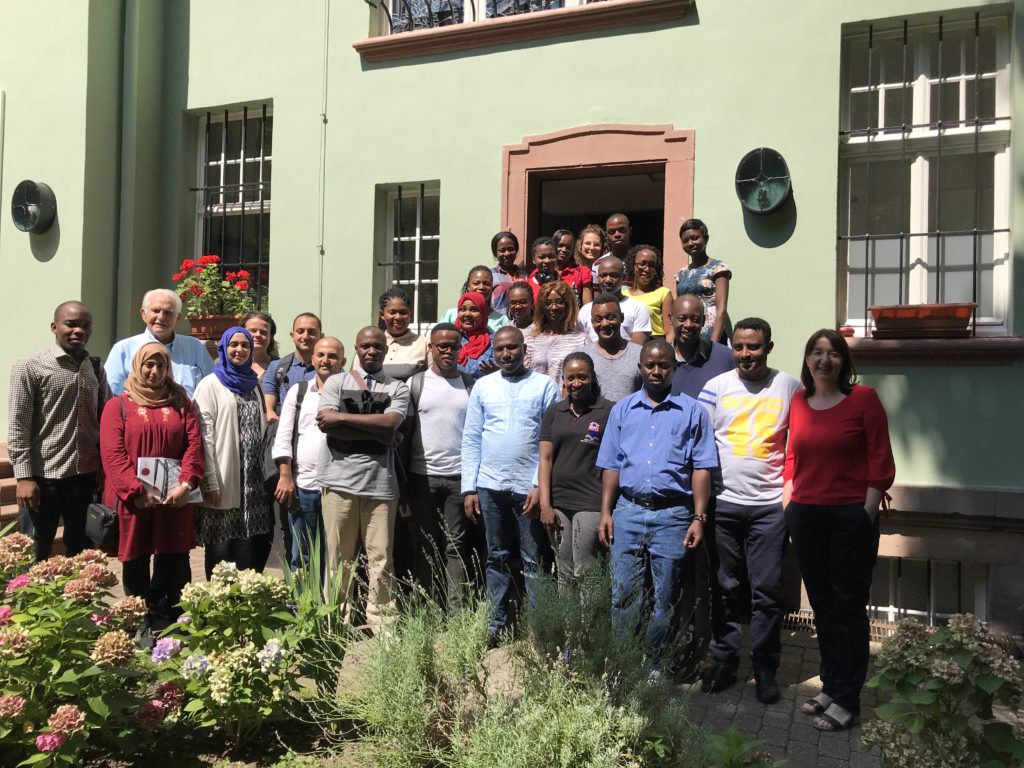How do you plan a research project in the health sector? How do you design the teaching? The Heidelberg Institute for Global Health invites DAAD scholarship holders to the Summer School, which focuses on future university lecturers and other professionals. The four-week course has now taken place for the third time. Teaching coordinator Dr Pauline Grys explains why it is an exceptional experience for the participants.
Who is the Summer School aimed at?
It is aimed at Master’s and doctoral students. They come from developing countries and are sponsored by the DAAD. The scholarship holders do not study and conduct research in Germany, but mainly in their home countries. They will later work as professionals, especially as university lecturers. The Summer School is also intended to support the establishment of efficient and cosmopolitan universities in the partner countries as well as networking with Germany.
How many participants came to Heidelberg?
This year, 100 students from 20 countries applied. Of these, 15 Master’s students and 9 doctoral students were selected from eleven countries. 80% of the participants came to Germany or Europe for the first time; this is true for all three summer schools thus far. Many had never been abroad before and had no experience in learning and discussing in an international group.
Training i n interdisciplinary work
n interdisciplinary work
How does this affect the design of the Summer School?
We start with intercultural training and provide the participants sufficient space to share their experiences in Germany with the international group. This is essential for establishing a good atmosphere and effective cooperation. The scholarship holders also learn a lot for their future careers. Equally important is the experience of looking beyond their own professional horizons and learning to deal constructively with the knowledge and methods of others.
What does that mean exactly?
The topic of health includes not only healing, but also education and prevention. Take, for example, the infectious disease Ebola. For this reason, Summer School participants come from many different disciplines. Engineers who work with the water supply, sociologists, dentists and health economists are all involved – the Summer School is a training course in interdisciplinary work.
What are the topics of the lectures and workshops?
We have three main focuses: teaching, research and raising third-party funds. We want to strengthen the skills of our scholarship holders in all three areas. They learn how to plan and implement a research project in the health sector, for instance. Another topic is participatory teaching methods. Most of the participants are only familiar with frontal teaching and rigid hierarchies. They are not used to discussing and collaborating in a group. And this is exactly what is practised at the Summer School – controversial discussion and effective cooperation.
Intensive group dynamics
How does this play out in the group?
At first nobody dares to say anything, but over the course of time the workshops become lively. The participants learn with and from each other, exchange ideas and challenge one another. This is a very exciting process at every Summer School.
Do you re-design the programme each year?
The focus remains the same, but we adapt the course to the respective group and thus continue to develop the programme. This year for the first time, participants had to work out the lessons learned via an interactive presentation. These lessons are mainly the students’ impressions of living and working together in the international group as well as in the host country. Another new item on the programme was the trip to the European Parliament in Strasbourg – a visit that impressed the scholarship holders very much.
In addition to the content, what is important for the students?
Germany and the intercultural group. And the visit to the DAAD in Bonn where they can talk face-to-face with staff members that they have only known through e-mails up to that point. The scholarship holders are also very interested in establishing contacts with professors because many of the master’s students are considering pursuing a PhD in Germany.





